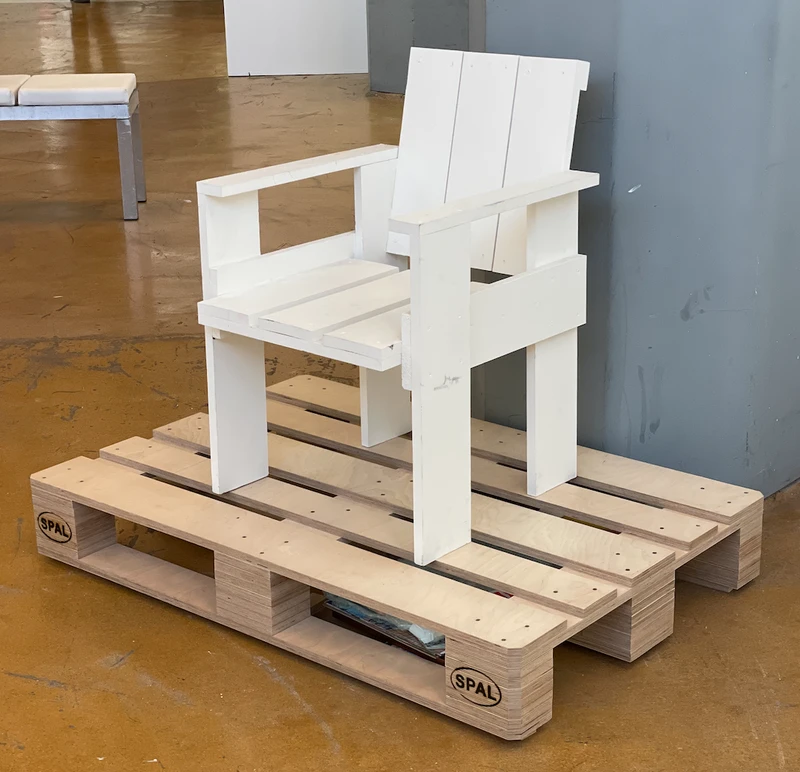Crates on Pallets
15 Mar-31 Mar 2024
PV 15 Mar 2024, 6-10pm


Crate on Pallet is an exhibition of furniture, reading and performance at Division of Labour with Pallet Show.
Four artist-made copies of the Crate chair, which was originally made by Gerrit T. Rietveld, play host to reading groups, invigilators and weary gallery visitors.
Rietveld designed the first pieces of crate furniture in 1934 from inexpensive planks of pine, which were joined by brass screws. The range was inspired by the packing crates used to transport furniture and included an armchair, low table and bookcase were intended for ‘acquaintances […] who had no money, but still wanted to make a modern piece of furniture'.
Dutch architect and furniture designer Gerrit T. Rietveld (1888-1964) was born in Utrecht, Netherlands. He learnt the trade of furniture maker at an early age in his father's workshop. Later, he apprenticed as an architect and joined the Dutch avant garde art movement De Stijl. In 1917, Rietveld opened his first furniture workshop on the Adriaen van Ostadelaan in Utrecht.
Pallet Show is a curatorial project consisting of a number of wooden pallets, which function as a platform or plinth for displaying sculptures or other curated works.
The pallets are themselves artworks, exploring the line between minimalist sculpture and functional objects. Sculptures that also have the capacity to perform a function, and an experiment in how art objects might be (re)purposed to take on the role of support structures or hosts for other works and ideas within an exhibition context.
Pallet Show is informed by the mass transit of artworks in the art market and global economy, and the logistics of their movement from, to, and between, sites of storage and display. Pallets are signifiers of trade that wear the markings of the workings of these interconnected systems.
Pallet Show blurs the distinction between the movement and storage of works at The Manchester Contemporary and their means of display and aesthetic within the fair. The exhibition appears provisional, in transit, and under construction. The project is inspired by the forms and legacy of minimalist sculpture, including the furniture sculptures of Donald Judd, ‘simulated readymades’ of Fischli and Weiss, and Seth Siegelaub’s curatorial projects
Division of Labour
c/o Paradise Works
Irwell House, Salford, M3 7LE